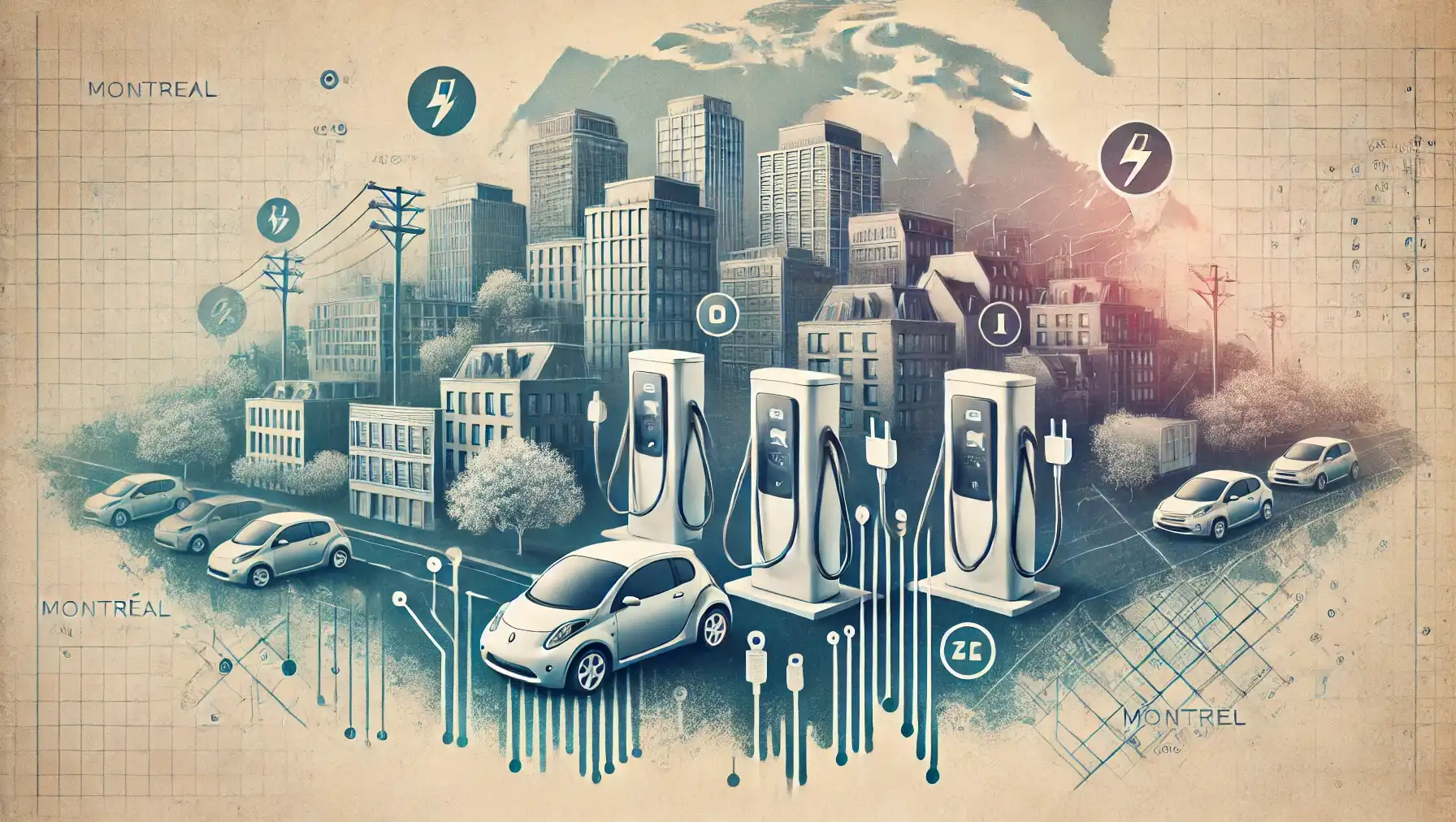As the world transitions towards sustainable energy solutions, electric vehicles (EVs) are becoming increasingly popular. Montreal, Quebec, is no exception, with a growing number of residents opting for EVs due to environmental concerns and incentives provided by the government. However, the integration of EV charging stations in multi-dwelling units (MDUs) presents several challenges, including issues with the electrical grid, infrastructure limitations, and regulatory hurdles. This blog post delves into these challenges and offers strategies to effectively meet this emerging requirement.
The Rising Demand for EV Charging Stations
The adoption of electric vehicles in Quebec is on the rise, supported by the provincial government’s incentives and the increasing availability of various EV models. According to the Government of Quebec, there were over 100,000 electric vehicles registered in the province by the end of 2023. This surge in EV ownership has heightened the demand for accessible and reliable charging infrastructure, especially in urban areas like Montreal where many residents live in MDUs.
Challenges in Implementing EV Charging Stations
-
Infrastructure Limitations
- Electrical Capacity: Many MDUs in Montreal were constructed decades ago and are not equipped to handle the additional electrical load required for multiple EV charging stations. Upgrading the electrical infrastructure to accommodate these stations can be both costly and disruptive to residents.
- Space Constraints: Finding adequate space for installing EV charging stations can be a significant challenge, particularly in older buildings with limited parking facilities.
-
Impact on the Electrical Grid
- Load Management: The addition of EV charging stations can place a substantial burden on the local electrical grid. The increased demand for electricity during peak hours can lead to grid instability and potential outages.
- Grid Upgrades: To support the growing number of EVs, substantial upgrades to the local electrical grid are necessary. This includes enhancing distribution networks and integrating advanced load management systems.
-
Regulatory and Administrative Hurdles
- Permitting and Approval: The process of obtaining the necessary permits and approvals for installing EV charging stations can be lengthy and complicated, involving multiple stakeholders.
- Condo Board Approval: In MDUs, getting approval from the condo board or homeowner association can be challenging, as it requires consensus among residents who may have varying opinions on the necessity and cost of the installations.
-
Cost and Funding
- High Initial Costs: The upfront cost of installing EV charging stations, including the necessary electrical upgrades, can be prohibitively high for many property owners.
- Maintenance and Operation: Ongoing maintenance and operational costs must also be considered, ensuring that the charging stations remain functional and safe for users.
Strategies to Overcome Challenges
-
Government Incentives and Support
The Quebec government offers various incentives and rebates to offset the cost of installing EV charging stations. These programs can significantly reduce the financial burden on property owners and encourage the adoption of EV infrastructure.
-
Leveraging Technology
- Smart Charging Solutions: Implementing smart charging solutions can help manage the electrical load more effectively. These systems can distribute the load evenly, prevent grid overload, and reduce peak demand charges.
- Energy Storage Systems: Integrating energy storage systems can store excess energy during off-peak hours and release it during peak demand, alleviating pressure on the grid.
-
Collaboration with Utility Companies
Collaborating with local utility companies can facilitate the grid upgrades necessary to support EV charging stations. Utility companies can provide valuable insights and technical support to ensure the successful integration of charging infrastructure.
-
Comprehensive Planning and Design
- Infrastructure Assessment: Conducting a thorough assessment of the existing electrical infrastructure can identify potential issues and necessary upgrades.
- Space Optimization: Utilizing innovative design solutions can help maximize the available space for EV charging stations, even in older buildings with limited parking facilities.
-
Stakeholder Engagement and Education
- Resident Education: Educating residents about the benefits of EV charging stations and the environmental impact of EVs can help garner support for the installations.
- Transparent Communication: Maintaining transparent communication with residents and stakeholders throughout the planning and installation process can help address concerns and build consensus.
-
Financial Planning and Management
- Cost-Benefit Analysis: Conducting a cost-benefit analysis can help property owners understand the long-term benefits of installing EV charging stations, including potential increases in property value and attractiveness to prospective tenants.
- Funding Opportunities: Exploring various funding opportunities, including government grants, loans, and partnerships with private companies, can provide the necessary financial support for these projects.
Conclusion
The integration of EV charging stations in multi-dwelling units in Montreal is a complex but necessary step towards supporting the growing adoption of electric vehicles. While challenges related to infrastructure, grid capacity, regulatory approval, and cost exist, strategic planning and the utilization of available resources and technologies can help overcome these hurdles. By adopting a proactive approach and leveraging government incentives, property owners can successfully meet the emerging requirements for EV charging infrastructure, contributing to a greener and more sustainable future for Montreal.
